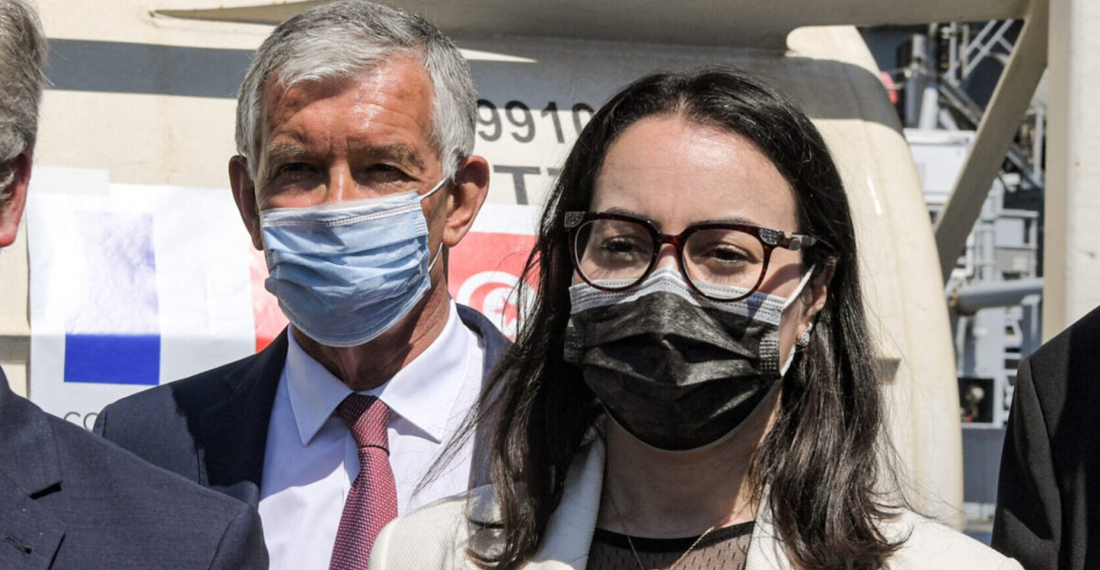Tunisian prosecutors have decided to open an investigation into audio recordings in which a former senior adviser to the Tunisian president Kais Saied allegedly criticises his leadership and comments on the president's health problems.
While Nadia Akacha denies being the person heard in these recordings, the former iron lady and Saied loyalist is said to have referred to the president's nonchalant diplomatic relations with his American counterpart and to have denigrated certain colleagues.
These seven leaked audio recordings of alleged conversations have monopolised the attention of the Tunisian media for more than a week and polluted the image of an already politically isolated president.
Kais Saied comfortably won the 2019 election against a media tycoon who was facing corruption charges. The new president then seized full power on 25 July 2021 by suspending the house, removing the then prime minister, and governing by decree in a way that reduced the influence of parliamentarians and reshaped the political system.
These moves prompted accusations of a coup d'état from members of the conservative Islamist party once dominant in Tunisia's parliament - Ennahda. They criticise the failure to respect the 2014 constitution.
Saied solicited the opinion of the people to help him rewrite the 2014 constitution through an online questionnaire earlier this year. The new constitution would then be submitted to a national referendum in July before parliamentary elections are held in December 2022.
Yet, the constitutional questionnaire did not interest the Tunisian population, as the questionnaire was filled by less than 10% out of an electorate of 6 million people.
The population seems to consider political tensions as irrelevant to their concrete needs, while Tunisia is facing a major economic crisis.
On Thursday, 5 May, Tunisia's dinar currency has fallen to new record lows versus the dollar. Rising inflation - now at 7.5% - a worsening trade deficit ($1.4 billion) due to the impact of the Ukraine crisis paints a bleak picture for the future of the North African country.
Just as the purchasing power of ordinary Tunisians continues to erode, so does the growing isolation of the Tunisian president.
Sources: CommonSpace.eu with RFI (Paris), Reuters (London) and other media outlets
Picture: Tunisia's Presidential chief of staff Nadia Akacha and other officials look on at the port of Rades on the eastern outskirts of the capital Tunis on July 22, 2021 ; Twitter: @MiddleEastMnt







